EXTRACT: see full version here
Gates of Eden is arguably the song in which Bob Dylan takes his interest in symbolist poetry to the most extreme level. Its collocation of dream imagery is often bizarre and sometimes impenetrable. Under the spell of symbolist poets like Rimbaud and Baudelaire, he appears to be luxuriating in the joy of pure imagery. As with Mr. Tambourine Man, the influence of the psychedelic experience also strongly informs the song. A couple of years later, this kind of culture would enter the popular consciousness through many popular hit singles and albums. But unlike, say, Hurdy Gurdy Man by Donovan, Flowers in the Rain by The Move, Hole in My Shoe by Traffic or The Beatles’ Lucy in the Sky With Diamonds, Gates of Eden is no ‘hippy-dippy’ fantasy. It delivers its philosophical message in an uncompromisingly harsh tone, almost in the manner of an admonitionary sermon.
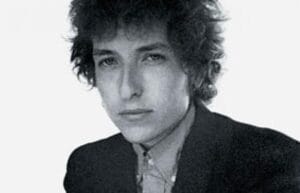
As Dylan delivers it, Gates of Eden is an angry song. Despite its apparently weird irrationality it expresses the confusion of the post-Missile Crisis world with great eloquence. The opening line immediately introduces us into its dream-logic. Dylan begins by spitting out …Of war and peace the truth just twists… The rather ungrammatical statement takes us by surprise. But it is not only grammatical sense that has broken down in the song’s post lapsarian dream world. The singer is on a mission to redefine the nature of truth itself – a truly philosophical enterprise. The line ends …its curfew gull it glides… This is immediately puzzling. Does ‘it’ refer to the notion of ‘the truth’ presented here? And what on earth is a ‘curfew gull’. The word ‘curfew’ suggests a repressive society and birds certainly do settle down at night as if they are obeying a ‘curfew’. The phrase seems to indicate that Dylan has been experimenting with ‘automatic writing’, a technique beloved of the Beat poets intended to produce juxtapositions of words from the subconscious. Perhaps Dylan is suggesting that populations which might be ‘flying free’ have a ‘curfew’ of darkness (or ignorance) imposed on them. But this kind of language does not invite definitive interpretations.
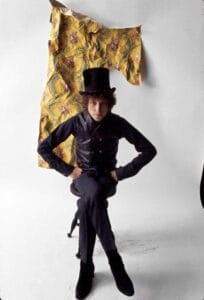
Most listeners, however, will gloss over the line as the imagery in the next two lines is so powerfully and brilliantly visual: ..Upon four legged forest clouds the cowboy angel rides/ With his candle lit unto the sun, though its glow is waxed in black… The outlandish ‘four legged forest clouds’ paints a surreal picture of a world in which nature itself has been ‘turned upside down’ – as if the clouds have taken on the shape of a great threatening beast. This recalls the nightmarish image of nuclear mushroom clouds looming overhead. The figure of the ‘cowboy angel’ recalls that of the hilarious character Major Kong in Stanley Kubrick’s devastating anti-nuclear satire Dr. Strangelove (released in 1964, the year Gates of Eden was composed) who goes down with the bomb that will trigger Armageddon. The image that follows – of a candle lit ‘into the sun’ seems strangely pointless. The brilliantly suggestive ‘its glow is waxed in black’ may suggest that the sun itself is blackened and dead. The use of ‘waxed’ is particularly clever as the term refers both to one of the phases of the moon and to the making of candles. Yet we are then told that the picture of a distorted world does not apply …’Neath the trees of Eden… Dylan thus immediately sets up the notion of ‘Eden’ as being in opposition to the dystopian scenario he has created.
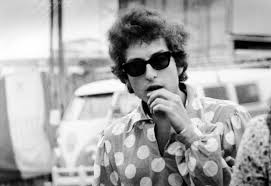
‘Eden’ of course refers to the Garden of Eden, the mythological location where, according to Genesis, Adam and Eve began the procreation of the human race. According to the Judeo-Christian tradition, it was in Eden that the ‘fall of man’ into sinful ways began. In the great epic poem Paradise Lost John Milton describes this process in intimate detail. The notion of ‘Eden’ has been expanded over the centuries to describe a wonderful or paradisiacal location or a blissful state of mind. It seems that Dylan is now focusing on the notion of Eden as a place of innocence – a kind of Utopia which is simultaneously an individual state of idyllic harmony and delight. The hippie generation that followed in Dylan’s wake may be said to have been reaching out towards this ideal state. A Joni Mitchell sang in her celebration of Woodstock, the most public manifestation of countercultural ideals: …We are stardust, we are golden/ And we’ve got to get ourselves back to the garden…
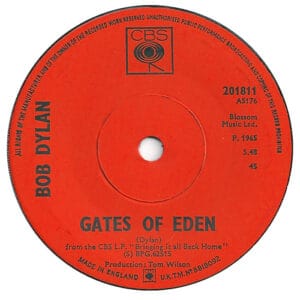
In some wonderfully funny lines Dylan encapsulates the paranoia of the ‘straight world’ in the face of the burgeoning counter culture: …The motor cycle black Madonna two wheel gypsy queen… he sings, delighting in the accumulated adjectival nouns …And her silver studded phantom cause the grey flannel dwarf to scream… The ‘grey flannel dwarf’ (whose reduced stature is, we may assume, more mental than physical) is a stereotyped representation of a conformist – clearly a relation of ‘Mr. Jones’ from next year’s Ballad of a Thin Man. The ‘dwarf’ is then seen to pay obeisance to the …wicked birds of prey/ Who pick up on his breadcrumb sins… The suggestion seems to be that such representatives of ‘the establishment’ are consumed by religious guilt. However Dylan concludes in no uncertain terms that the feeding of ‘breadcrumbs’ is essentially a waste of time as…there are no sins inside the Gates of Eden…
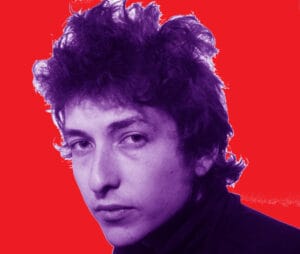
This final line presages the philosophical conclusions that now come to dominate the song, perhaps most effectively in the seventh verse, which begins with a strong suggestion of corruption: …The kingdoms of experience in the precious winds they rot… followed by a beautifully balanced expression of pointlessness: …While paupers change possessions, each one wishing for what the other has got… Meanwhile …the princess and the prince discuss what’s real and what is not… But philosophy itself is futile as …It doesn’t matter inside the Gates of Eden…
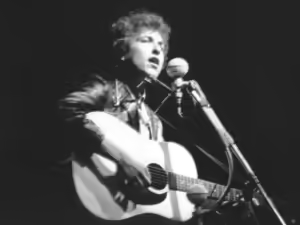
In the following verse this sense of futility is taken to the logical extreme. We are told that …friends and other strangers from their fates try to resign… another pointless strategy, as one cannot ‘resign’ from one’s fate. Dylan follows this by what is perhaps the song’s most devastating indictment of the inaction of the rulers of the world in the face of impending cataclysm: …leaving men wholly, totally free… he sings, building up the emphasis with the harsh staccato double positive …to do anything they wish to do but die… as if they are trapped in some horrific version of purgatory. Finally he reminds us that …there are no trials inside the Gates of Eden… Dylan’s ‘Eden’ is far removed from the judgmental notions of heaven, hell and the afterlife that dominate much Judeo-Christian theology. It appears to represent a place of spiritual truth where ‘there are no trials’ but natural justice reigns.
In the final verse the singer’s lover comes to him and reveals that all of this was a dream. She makes no attempt to analyse the plethora of images we have been presented with, concluding that …At times I think there are no words but these to tell what’s true/ And there are no truths outside the Gates of Eden… Thus the ‘cowboy angel’, the ‘lamppost with folded arms’, the ‘savage soldier’, the gang of ‘Utopian monks’, the ‘Black Madonna’ motor cyclist and the ‘grey flannelled dwarf’ are all figments of her fevered imagination as her mind wrestles with matters of conscience, sin and justice.


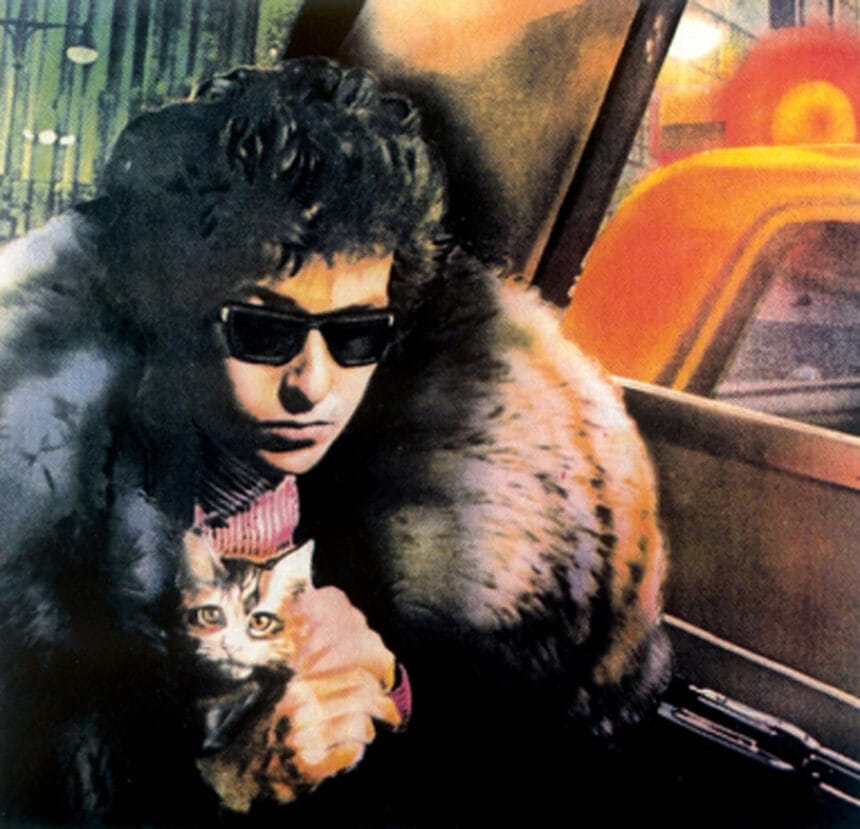
Leave a Reply